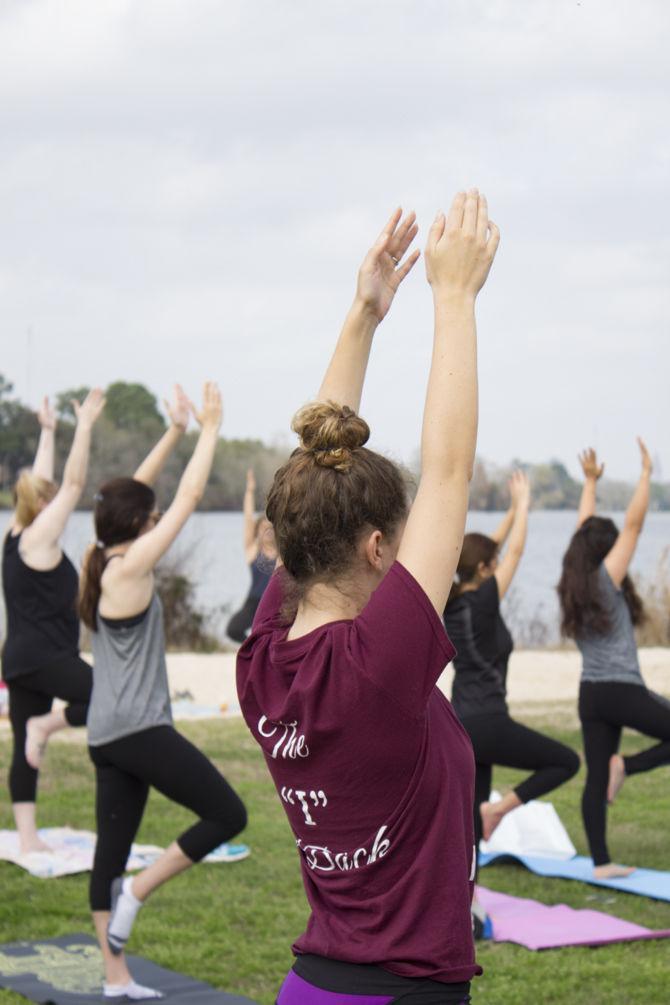I took a feature writing class in the spring semester of 2018. One assignment was to do something new for 30 days and write about our experiences. For my 30 Day Challenge, I chose to meditate.
The mindfulness skills I learned in those 30 days would become far more valuable than the writing skills I would learn.
Mindfulness is a simple concept — it’s nothing more than the self-awareness of your thoughts. Doing something about those thoughts, though, is the hard part.
I have depression and anxiety. Oftentimes, it’s not fun living in my mind. Some days, I can’t get out of bed. Other days, I feel like I’m not good enough for this world. Many days I’d do anything to get out of my head. To put it bluntly, living is uncomfortable far too often, especially prior to learning how to correct those thoughts.
Before I began seeking professional help for my mental illnesses, I coped with those thoughts in all the wrong ways. Drugs, sex and manipulative behavior were my escapes.
Mindfulness forced me to honestly assess those thoughts rather than numbing them. Why am I thinking this? Does this thought help me in any way? Is this worth worrying about?
The more I meditated, the more I learned how to bring myself out of the past or the future — out of those depressing and anxious thoughts — and into the present.
After those 30 days, I was actually disappointed that I had just now decided to give it a try. The evidence of the benefits of meditation and mindfulness were all around me. My therapist had been telling me to give it a try. ABC’s Dan Harris wrote an entire book on it. Every self-help article I read mentioned something about the power of mindfulness.
Those powers include reduced stress and rumination, while increasing focus, cognitive flexibility and relationship satisfaction, according to the American Psychological Association. I experienced all of these positive outcomes in those 30 days.
In the present, 99 percent of the time, I’m actually ok. The pain was all in my head, I just didn’t realize that I could control the pain meter.
Many college students don’t realize this, either. The University’s Mental Health Service is overburdened with students seeking relief. By the way, I’m proud of you if you’re one of those students. It’s never easy to make the decision to schedule that first therapy appointment.
“Psychology and the Good Life,” taught by Dr. Laurie Santos, is the largest class Yale has ever seen. The course teaches students how to live happier lives by teaching various life skills, including mindfulness. Since its inaugural semester, the class has spread to other colleges.
This University would do good for its students by developing a similar class. The demand is there. The evidence is there. Bo Campbell Auditorium is there.I implore one caring,ambitious and qualified professor to take up this task.
Imagine a campus with fewer stressed students turning to drugs or alcohol to make it through the week. Imagine a campus with happier, healthier students. This is already a beautiful campus made up of beautiful students. What if it was just a bit more beautiful? This class has the ability to do that.
The way we think on a daily basis affects us far more than math, science or the liberal arts — all of which are general education requirements. Why shouldn’t the University offer a course that teaches students how to think healthier and be happier?
James Smith is 22-year-old mass communications senior from Grand Coteau, Louisiana.
Opinion: Mindfulness class would offer overwhelming benefits to LSU students
By James Smith
November 8, 2018
A participant practices yoga techniques in Milford Wampold Memorial Park in Baton Rouge on Sunday, Feb. 18, 2018.







